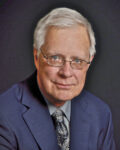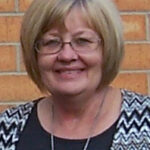
By Greg Cusack
(Both The Catholic Messenger and The National Catholic Reporter have recently featured stories regarding the major recommendations — from Iowa and around the nation — coming from synodal gatherings. I was impressed by how welcoming, inclusive and full of good will these reports were, confirming my deep conviction that most of us are essentially decent people who wish each other well.
This stands in stark contrast to the impression one gets from the media (including and especially the misnamed “social” media) where we regularly witness loud, offensive and divisive opinions that contribute to the growing concern among many citizens that we seem to be heading inevitably toward some form of civil strife. I believe that the Church’s synodal process offers us an example of what we need if we are to avoid further, escalating civil strife!
Here’s why. Many years ago, I finally learned a hard lesson: as long as my fears and hopes remained vague, unspecified and unexamined, I was subjected to daily tugs and pulls this way and that and my concerns easily became over-inflated and unmanageable. I learned to start putting them on paper, helping me to assess their size (their likelihood of occurring and relative importance) and to envision how to manage them through prioritization and planning.
I believe this is what Pope Francis hoped to do with this synodal process. While it is too soon to assess the result of this Church-wide conversation, it has already served to demonstrate the many things we have and wish for in common. Since this kind of process demands speaking one’s mind and listening respectfully to others, it likewise concretized our various hopes and fears. Iowa and the entire nation could well benefit from a similar process!
As long as we remain locked into exchanging charges, insults and disparagements about heated hot-button issues, we will achieve nothing! However, if we take the time to engage in the hard work of citizens by sitting down with each other, expressing our concerns and wishes and listening closely and respectfully to each other, we can begin to take steps to resolve our differences. This is precisely what those who stand to gain from continued unrest, whether for economic or political gain, do not want. As should be clear from their constant provocations, their success depends on us remaining at each other’s throats.
What might we Catholics have to contribute to such a discussion? Concrete ideas about what we need to do in order to achieve the common good (as opposed to the good of only some), a concept enshrined not just in the Church’s social justice tradition but also in what the founders of the United States hoped we would pursue as citizens.
In the context of Catholic social justice teachings, this includes such things as every citizen having the ability to obtain decent housing, a living wage, a good education, adequate health care and freedom from poverty. Also in keeping with Catholic tradition, while governmental structures have an important role to play in achieving the common good, so do religious institutions, voluntary private associations and various charities and philanthropic organizations.
The synodal example gives us a viable example of the process, along the lines of old-fashioned “town-hall meetings,” where we gather as friends and equals to identify and prioritize specific components of the common good most needed where we live. These include our communities, states, regions, and country — deciding on the appropriate mix and role of government, the private sphere and individual efforts necessary to achieve the decided goals. With identifiable goals and accompanying timeline targets, we also allow for ongoing citizen input and feedback.
Time-consuming? Definitely! This commitment of time, listening to and respectfully conversing with our fellow citizens, is what we so desperately need now.
We once were willing to roll up our sleeves and tackle together what ails us, thereby recreating the “American dream” for our own time. Are we still up to it?
Where two or three are gathered together in my name, there I am in the midst of them. [Matthew 18: 19-20]
(Greg Cusack taught college, served on the Davenport City Council from 1969-73, and the Iowa House of Representatives from 1973-81. He then served as executive director of National Catholic Rural Life Conference from 1981 until late 1986. His public service continued in other areas until he retired as Chief Benefits Officer of the Iowa Public Employees Retirement System in 2004.)











